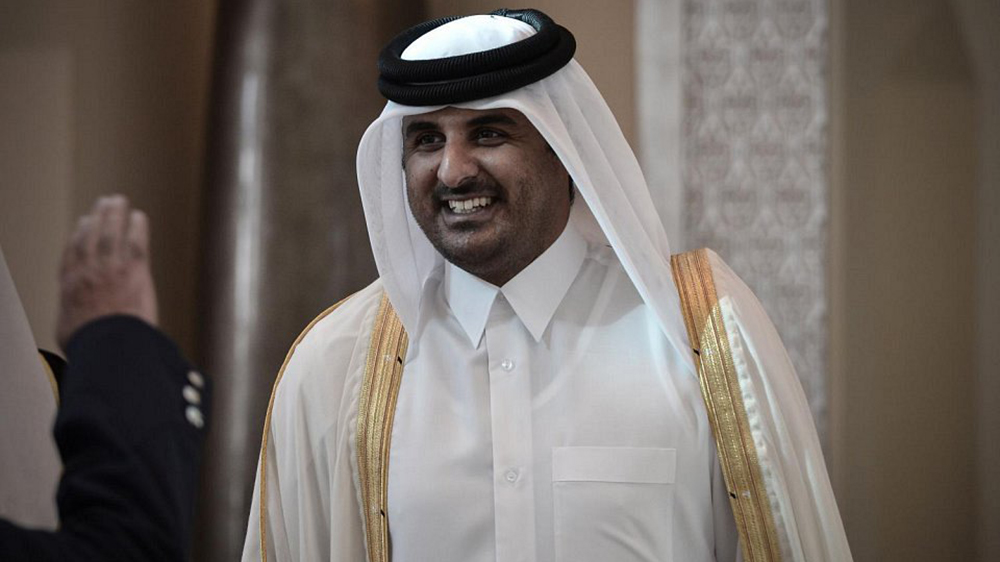
The Emir of Qatar, Sheik Tamim bin Hamad al Thani, is leading a state delegation to South Africa later this month. His visit is part of a steadily growing interaction between the countries of the Gulf Cooperation Council (GCC) and Sub-Saharan Africa. South Africa in particular has increased its economic and political engagement with the GCC. The Oryx Gas To Liquid project, a partnership between South African energy giant SASOL and Qatar Petroleum, is perhaps the largest point of cooperation, but also a number of South African retail franchises continue to make inroads in the GCC market. This paper provides an overview of the historical relationship between the GCC and South Africa, and discuses the recent increased political and economic cooperation. The paper concludes by exploring potential opportunities presented by the upcoming state visit by the Qatari emir.
Introduction
The relationship between the GCC and Sub-Saharan Africa continues to present opportunities. The lull in interactions between the Arabs in general and Sub Saharan African has over the years widened mistrusts between Arabs and Africans. President Kamuzu Banda of Malawi was not only critical of the Arabs, denouncing Arab Sudanese policies towards their Southern compatriots; he also maintained that Arab participation in the heinous African trade excluded Arabs from being regarded as Africa’s genuine friends.(1) The increased presence of Qatar and other Gulf nations in Sub-Saharan Africa will help to erase stereotypes held by the people of both regions.
The discovery of oil in the 1930s altered the Gulf’s position in international politics. The region’s influence rose dramatically over the course of the 20th century and in 1981 the Gulf Sates banded together to establishment the Gulf Cooperation Council (GCC). The founding of the GCC marked the beginning of direct interaction between Gulf countries, as a collective, and Sub-Saharan Africa at political and economic levels.
Prior to 1981, the Gulf countries’ foreign relations had been overshadowed by the Arab League, which largely shaped the foreign policy of the Arab world. During the tenure of Gamal Abdel Nasser, the Arab League enjoyed strong relationships in Sub-Saharan Africa as Nasser was supportive of the liberation of all African nations from colonial rule. Nasser was a bridge builder between North (largely Arab) and Sub-Saharan Africa, and, more broadly, between the Arab world and Sub-Saharan Africa.(2) His death largely ended Sub-Saharan Africa’s enthusiasm for partnering with the Arab League.
Since the early 1980s, the GCC emerged from the shadow of the Arab League and began to forge its own economic and political ties with African states. Over the past four decades these ties have become broad and deep. Currently, the GCC’s economic partnerships in Africa are broadening to include telecommunications and private equity in West Africa, as well as energy projects in South Africa and Mozambique. Saudi Arabia’s special role in the Gulf has placed the country in a special position in Southern Africa. Through organizations such as Rabitat al Alam al Islami, also known as the Muslim World League, Saudi Arabia has pursued soft power politics throughout Sub-Saharan Africa. Their activities include the construction of mosques, the distribution of religious books, and sponsorship for annual Ramadan festivities.
The GCC invigorates interaction with Southern Africa
GCC interaction with Sub-Saharan Africa is substantially increasing in three areas: tourism, business investment, and diplomatic exchange.
Tourism
There has been a steady rise of tourists from the GCC to Southern Africa, particularly South Africa. Many GCC citizens perceive that Western attitudes are hardening toward Muslim, and so tourists are looking for alternative travel destinations. Increasingly, Gulf citizens are traveling to South Africa and some are purchasing vacation properties such as game farms in the countryside. According to Saad Chachalia, the former South African ambassador to Qatar, the number of Qataris traveling to South Africa has increased six fold in recent years.(3)
The campaign to promote travel to South Africa began in earnest in 2005, as part of Next Stop South Africa. Senior officials from the South African departments of Environmental Affairs and Tourism, Trade and Industry collaborated with the South African Foreign missions across the Gulf, while Etihad Airways sponsored several travel promotions.(4) Since then, the Gulf carriers have increased flights to South Africa. Emirates Airline has four flights a day to Johannesburg, and Qatar Airways has three. One outcome of increased flights has been closer security cooperation between the GCC and South Africa. Most travelers from Southern Africa use Johannesburg to connect to various destinations around the world. Cooperation in intelligence has therefore become a key objective between the GCC and South Africa.
Business
Second, a number of business ventures between the two regions in construction, mining, oil and gas sectors have emerged. The retail sector has experienced a tremendous growth; currently South African franchises feature very prominently in the GCC including the popular retail outlet Nandos. The GCC has also invited a number of South African companies in other fields of business particularly in mining, agriculture, mineral processing and petrochemicals. In 2012 South Africa and Saudi Arabia set up a joint holding company to enhance business opportunities and investment between the two countries. According to the South African Minister of Trade and Industry, Rob Davies, the South Africa - Saudi Arabia Holding (Sasah) has a potential of creating 1,5 billion US Dollars of business between the two countries.
Sasah is one of the many examples of business facilitating initiatives between Southern Africa and the Gulf that have emerged over the years. Saudi Arabia remains the main energy supplier to Southern Africa. After Western nations placed sanctions on Iran, Saudi Arabia became Southern Africa’s major energy supplier. Now that the US-brokered nuclear deal is in effect, Saudi Arabia wants to limit the influence of Iran in Southern Africa. Furthermore, the GCC wants to ensure that South Africa does not support Iran and Russia’s position in the Syria crisis.
Diplomatic exchange
Third, over the past several months there has been an exchange of senior government delegations from the GCC to Southern Africa. Adel al Jubeir, the foreign minister of Saudi Arabia, visited South Africa in February 2017. And the president of South Africa Jacob Zuma visited Qatar in May 2016.
Qatar’s interests in Southern Africa
The Emir of Qatar Sheik Tamim bin Hamad Al Thani will lead a delegation to South Africa in the middle of April 2017. According to official sources, this is the biggest ever delegation from Qatar to any African country. At the top of the agenda is economic partnerships, security cooperation, and coordination regarding the FIFA World Cup 2022.
Qatar has continued to improve relations across Sub-Saharan Africa, particularly with South Africa. Trade between Qatar and South Africa has increased from $287 million in 2012 to $500 million in 2015.(5)
Many Africans who travel on Qatar Airways use South African airports to connect to destinations around the world. Unfortunately, this includes individuals hoping to travel to Syria and other places to join and support terrorist activities. According to Martin Ewi, a senior researcher at the Institute for Security Studies, for many radicalized young Africans, South Africa is a gateway to the world. Qatar’s new tourist visa program has further increased the security concerns. Qatar’s new visa program allows visitors four days transit visa in Qatar if traveling on a Qatar Airways to any destination in the world. Thus, Qatar has a strong interest to screen dangerous individuals before they arrive in Doha.
The emir’s visit will also open the possibility to expand cultural exchange between Qatar and South Africa. Qatar is rapidly becoming a tourist destination in its own right, possessing a collection of world class museums featuring some of the most valuable art in the Arab world. Qatar hopes to be a cultural hub that will attract tourists from all over the world. According to Britain-based Art Newspaper, Qatar is funding a large-scale project to make approximately 25,000 pages of medieval Arabic manuscripts available through the online collection of the British Library in London, representing a great milestone in cultural preservation.(6)
An important aspect of cooperation is on hosting mega-sporting events. The FIFA World Cup 2022 is fast approaching and the build-up will require expertise from across the world. Qatar could learn from South Africa’s experience hosting the successful World Cup 2010.
Finally, Qatar has established a strong business partnership with major companies in South Africa. The Oryx Gas To Liquid (GTL) project, a partnership between South African energy giant SASOL and Qatar Petroleum, is one case in point. The partnership between SASOL, a South African energy giant, and Qatar Gas continues to expand. Moreover, the discovery of gas off the coast of Mozambique will likely lead to the expansion of Qatar Gas’s interests in Southern Africa. Qatar Petroleum is interested in the Mozambique gas business of Italian energy group Eni and could opt to join Exxon Mobil in buying a multibillion-dollar stake.(7) South Africa will remain a vital partner in that project.
Conclusion
Politically, Southern Africa is a very strong region within the African Union. The GCC needs partners to help pursue its international political agenda, particularly at multilateral platforms like the United Nations. Moreover, Southern Africa is endowed with vast mineral resources and rich agricultural lands which might benefit the GCC as it strives for food and resource security. The region also boasts important expertise in the agricultural sector, which could benefit the GCC as it expands in this field. The expansion of the Gulf airlines into Southern Africa, including Qatar Airways and Emirates Airline, presents challenges and opportunities. Targeting of the aviation industry by terrorists has increased security risks and has added more responsibilities to the Gulf and South Africa in devising joint preventative measures. Finally, the increased flow of people between the two regions will necessitate new political arrangements; these arrangements will only be realized if political interactions at various levels of government and society are encouraged.
(1) Adeoye A. Akinsanya, “Afro-Arab Relations and North Africa,” Africa Institute of South Africa and Partners in Development, November 2010, http://pidegypt.org/download/conf/5-7nov-2010%20Regional%20Integration%20in%20Africa/Afro-Arab%20Relations%20and%20the%20Arab%20World.pdf
(2) Adeoye A. Akinsanya, “Afro-Arab Relations and North Africa,” Africa Institute of South Africa and Partners in Development, November 2010, http://pidegypt.org/download/conf/5-7nov-2010%20Regional%20Integration%20in%20Africa/Afro-Arab%20Relations%20and%20the%20Arab%20World.pdf
(3) Fazeena Saleem, “Qatari tourists to South Africa on the rise,” The Peninsula, 28 October 2015, www.thepeninsulaqatar.com/news/qatar/356608/qatari-tourists-to-south-africa-on-the-rise,
(4) Africa Travel Magazine, “South Africa targets Gulf states for tourism promotion, trade and investment,” 2007, www.africa-ata.org/sa_growth.htm
(5) Mzwandile Mbeje, “President Zuma’s Qatar visit a turning point in trade,” SABC, 18 May 2016, www.sabc.co.za/news/a/b97bce804ccecbd89c1d9c1ab0f926ee/President-Zumas-Qatar-visit-a-turning-point-in-trade-20160518
(6) Hurriyet Daily News, “Qatar signs its mark in a funding project,” 28 July 2012, www.hurriyetdailynews.com/qatar-signs-its-mark-in-a-funding-project.aspx?pageID=238&nid=26488&NewsCatID=375
(7) Ron Bousso and Tom Finn, “Qatar considers joining Exxon’s Mozambique gas move,” Reuters, 12 September 2016, www.reuters.com/article/us-qatar-mozambique-exxon-idUSKCN11I1NF
